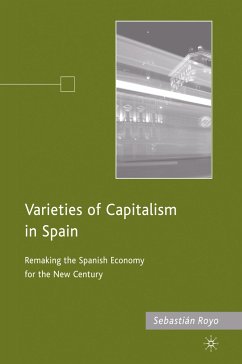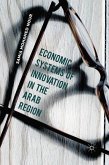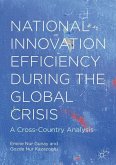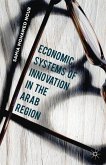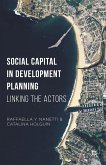Is globalization forcing non-coordinated market economies, such as Chile, Mexico, Spain, and Portugal, to converge on an Anglo-American model? What explains national differences in social and economic policies? This book builds on recent literature on 'varieties of capitalism' to show the impact that institutions have on national economic policy.
"Sebastián Royo s important new book shows how Spain has succeeded economically without fully adopting the most widely celebrated models for national prosperity. Royo s superbly documented scholarship tempers its optimism with a compelling analysis of remaining challenges, and offers an important contribution both to theoretical debates in political economy and empirically-focused controversies on the Spanish case." - Robert M. Fishman, Professor of Sociology and Kellogg Institute Fellow, University of Notre Dame.
"Sebastián Royo has written a landmark book on the transformation of the Spanish economy. His data and analysis contribute not only to our understanding of how countries can benefit from economic globalization and integration, but also to more general debates about the market economy and the various strands of capitalism that coexist in the world. A must read for economists, political scientists, and policymakers interested in assessing the impact of globalization on national economies." - Mauro Guillén, Director of the Lauder Institute, The Wharton School, University of Pennsylvania
"Sebastián Royo has written an important book on the Spanish political economy, demonstrating how Spain reformed and reorganized itself in ways that have enabled it to become a significant economic player in Europe. This work represents a major addition to the literature by showing that Spain is not condemned either to go down the road to neo-liberalism or tochoose between liberal and coordinated market economies." - Vivien A. Schmidt, Jean Monnet Professor of European Integration, Boston University
"Recommended." - CHOICE
"Sebastián Royo has written a landmark book on the transformation of the Spanish economy. His data and analysis contribute not only to our understanding of how countries can benefit from economic globalization and integration, but also to more general debates about the market economy and the various strands of capitalism that coexist in the world. A must read for economists, political scientists, and policymakers interested in assessing the impact of globalization on national economies." - Mauro Guillén, Director of the Lauder Institute, The Wharton School, University of Pennsylvania
"Sebastián Royo has written an important book on the Spanish political economy, demonstrating how Spain reformed and reorganized itself in ways that have enabled it to become a significant economic player in Europe. This work represents a major addition to the literature by showing that Spain is not condemned either to go down the road to neo-liberalism or tochoose between liberal and coordinated market economies." - Vivien A. Schmidt, Jean Monnet Professor of European Integration, Boston University
"Recommended." - CHOICE

